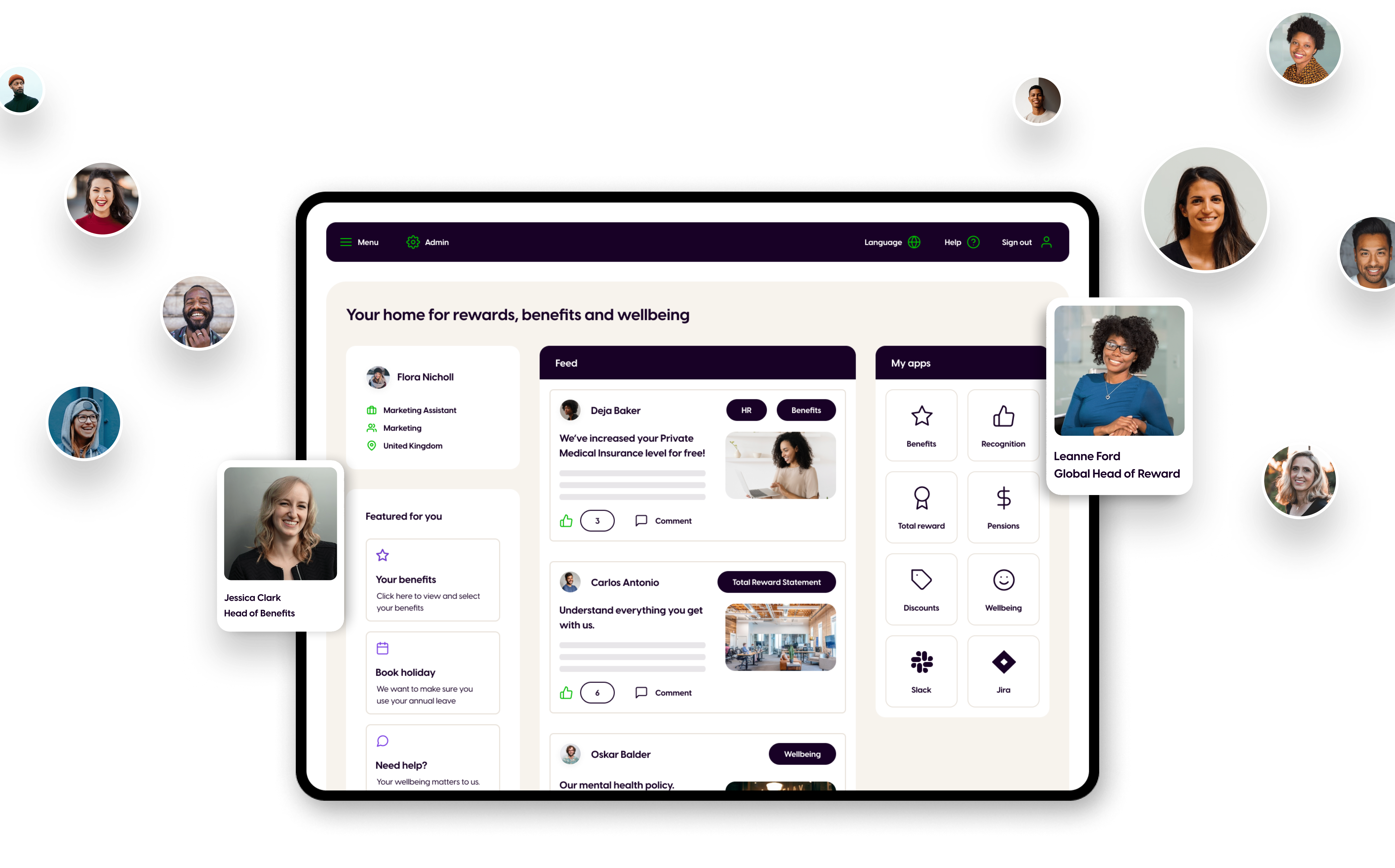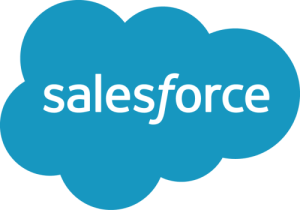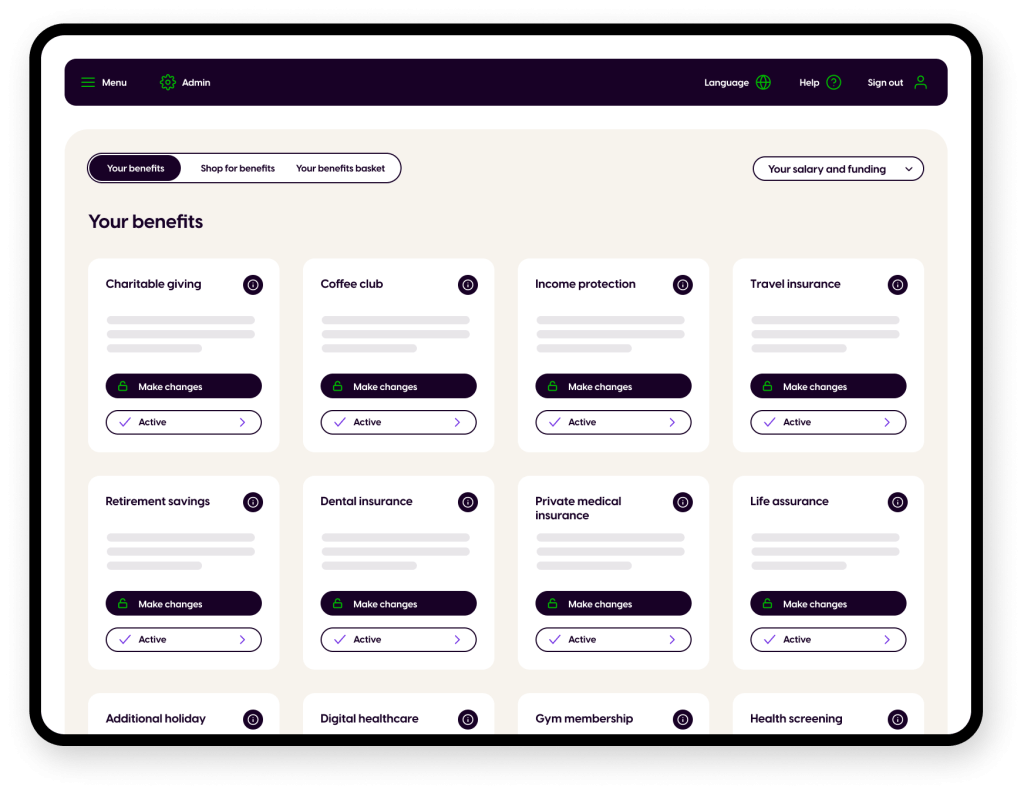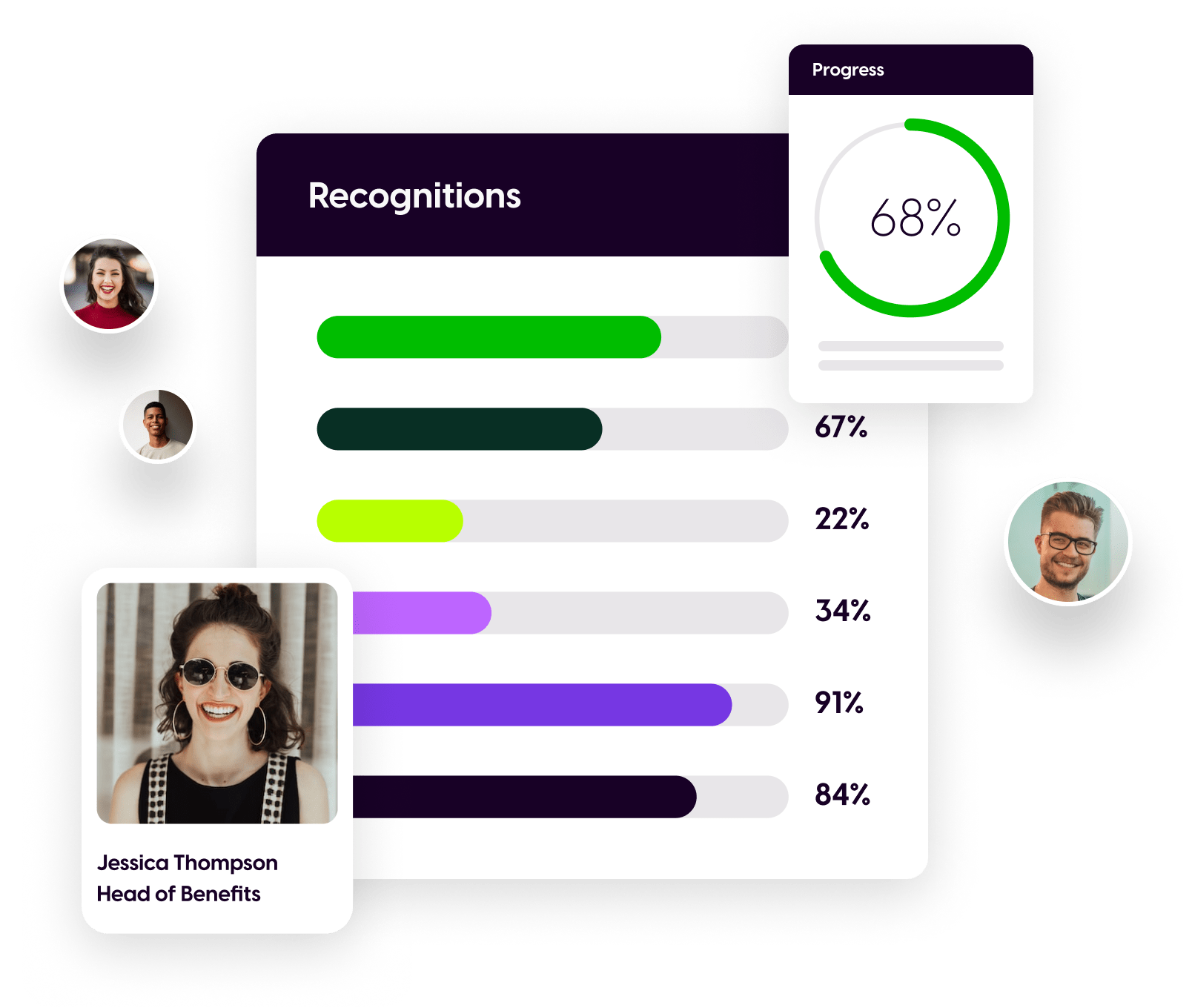Wrkit is now part of Benefex!
Which means that, as well as the great platforms you’d expect for Wellbeing and Discounts, you can now offer a whole range of exceptional employee experiences.
Are you ready for one home for your entire reward, benefits and wellbeing strategy?










Trusted by ambitious companies, globally.
Explore OneHub products
Reduce admin and get a better return on employee experiences
Attract and retain top talent
Drive a consistent employee experience globally
Help your people feel good about coming to work, every day
Improve employee wellbeing and engagement, and keep
your best people
Join the wave of people leaders
2.2m
Employee users
80
Countries

“They are helping us make sure our platforms are adapted to all of the locations we are in whilst maintaining the same level of experience for all of our employees whether they are in China, Miami or Edinburgh.”
Julia Clement, Head of Reward

900
Customers
900
Customers
95%
Customer satisfaction

“Working with Benefex we could quickly begin to imagine how we wanted to build the experience for employees.”
Tatiana Beidar, Head of Compensation and Benefits
Latest resources, events & insights
Partner with a leader in employee experience
2022 Winner

Inspiring Workplaces Awards
Top 25 Work Tech Vendors in the World
2023 Winner

The Sunday Times Best Places to Work Awards
The Sunday Times Best Places to Work Award Big Company: Benefex
2022 Winner

Employee Benefits Awards
Best Flexible Benefits Plan: EDF
Join our community and get the latest updates in the world of HR, reward, and benefits
Ready to connect your employee experience?











Trusted by ambitious companies, globally.







